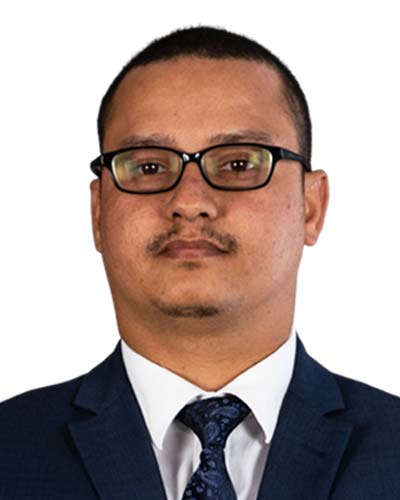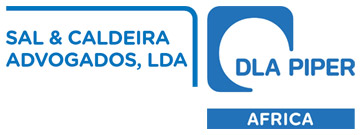Mozambique is earning attention from investors due to its abundant natural resources, including massive natural gas reserves, mineral deposits and potential for renewable energy. Many international players in the extractive industries, including TotalEnergies, Eni, ExxonMobil, Syrah Resources, Rio Tinto and Kenmare are active in the country.

Managing Partner
Sal & Caldeira
Tel: +258 21 241 400
Email: eduardo.calu@salc.dlapiperafrica.com
At more than 180 trillion cubic feet, Mozambique’s offshore natural gas reserves, concentrated in the Rovuma Basin, are huge and of high quality. Given the country’s geostrategic location – easily accessible for Asian and European markets – the prospect for attracting more investment into hydrocarbons is high.
Already, Mozambique hosts the largest single investment in Africa: TotalEnergies’ USD20 billion Area 1 project in the Rovuma Basin. This, together with the Coral South Project led by Eni and ExxonMobil, is expected to make Mozambique one of the world’s largest producers of liquified natural gas (LNG).
South Korean companies have positioned themselves at the forefront of these LNG projects. Samsung Heavy Industries in 2017 won a USD2.5 billion deal to build the first floating LNG treatment and liquefaction plant. The platform, the first of its kind ever deployed in the deep waters off Africa, arrived in Mozambique earlier this year. It is an integrated unit with the capacity to extract, liquefy, store and deliver to ship 3.37 million metric tons of LNG per year. In June 2022, the Coral South Project produced its first LNG on the plan. The South Korean national gas company, KOGAS, holds a 10% participating interest in this project.
In 2020, Samsung Heavy Industries and Hyundai Group’s Korea Shipbuilding & Offshore Engineering won orders for 17 LNG carriers worth USD3.1 billion, which will be used for the Area 1 project. With their knowledge of the projects and competitive advantages, South Korean companies are likely to win additional orders for LNG carriers as production increases. The Export-Import Bank of Korea has also said it would provide financing for the Mozambique LNG development.
Should South Korean companies now rest on their laurels? Or should they get to know the jurisdiction better, and look for further opportunities? We believe that South Korean firms have a lot more to give and gain from businesses in Mozambique.
ENERGY FOCUS

Senior Partner and Founder
Sal & Caldeira
Tel: + 258 21 241 400
Email: samuel.levy@salc.dlapiperafrica.com
Mozambican law provides that a significant percentage of the nation’s natural gas production be used locally to promote industrialisation. There are opportunities to produce fertiliser (including ammonia), fuel and electricity.
Distinct from gas but still in the energy pipeline is the 1,500 megawatt Mphanda Nkuwa hydropower project, valued at USD2.4 billion. The tender for the selection of the strategic partner for the development of this project is under way and expected to conclude in December 2022.
A new electricity law introduces more possibilities for private generation and supply. Other business sectors that attract the attention of foreign investors include logistics, retail, agriculture and real estate, all of which are ripe for South Korean investment.
CORPORATE AND COMMERCIAL
To create a more attractive business environment for trade and investment, the Mozambican government recently approved a new commercial code. Changes are aimed at simplifying processes around company incorporation and operation, through the introduction of new types of business vehicles, permitting online registration and publication of certain company acts and for meetings of corporate bodies to take place remotely.
To invest in Mozambique, there are several types of business vehicles investors can choose from. The most frequently used, and easiest to administer, is the limited liability quota company. If an investor does not wish to incorporate locally, it can instead register a foreign commercial representation (i.e., a branch), which is treated as an extension of its head office.
With some rare exceptions, Mozambican companies can be wholly foreign owned. Foreign individuals may be appointed as directors, and local branch representatives may be foreign (although there are residence considerations if a foreigner is appointed).
TAX MATTERS

Manager
Sal & Caldeira
Tel: + 258 21 241 400
Email: gisela.sitoe@salc.dlapiperafrica.com
Mozambique’s legal framework for investment provides incentives of four types: tax; customs; incentives related to the repatriation of capital invested and profits; and protection or guarantees provided by the Mozambican state for private property and investments. Investors may also negotiate and obtain greater quotas for employment of foreign workers in their projects – an important goal to accomplish as part of project planning and authorisation.
For these purposes, investors apply for investment project authorisation with the Investment and Export Promotion Agency (APIEX). Tax incentives include exemptions from customs duties and value-added tax (VAT) on imports of equipment, accessories and spare parts, accelerated depreciation, tax credits for the use of new technology and even some reductions in corporate income tax for projects in certain strategic sectors. Attractive investment schemes are also available for projects that qualify as industrial free zones or are located in special economic zones.
The Mozambican tax system features both national and municipal taxes. The main national taxes applicable to companies include the corporate income tax (IRPC) and personal income tax for its employees, VAT, specific consumption tax and customs duties. The general rate of IRPC is 32%. Income subject to withholding at source is taxed at the rate of 20%. IRPC is subject to withholding at source in respect of income of non-resident entities without a permanent establishment in Mozambique, among other instances.
Where a double taxation treaty (DTT) is in place, the withholding tax rate may be reduced or even eliminated. Frequently used DTTs include the treaties with Mauritius and with the UAE. Mozambique has foreign exchange controls. The Foreign Exchange Law is under review and the new law is expected to be enacted later in 2022. The regulatory body for this matter is the Bank of Mozambique (BoM).
Foreign direct investment is already pre-approved but is subject to registration with the BoM within 90 days from the date of approval of the transaction or from the date on which the funds were transferred. The minimum investment amount is equivalent of MZN7.5 million (USD117,000). Timely registration of foreign investment is important to avoid fines and ensure the exportability of dividends.
LABOUR MATTERS
Mozambican labour law is very formalistic and employee-favourable. Although employers have disciplinary and supervisory powers, the protection of employees is reflected in the principle of more favourable treatment to the employees as well as the need for labour union involvement in disciplinary proceedings, termination of employment contracts and hiring of foreign employees. The Labour Law is being revised, with a public consultation now under way, but its employee-favourable provisions are highly likely to remain.
Companies must comply with the rules on hiring foreign workers not only under labour laws, but also immigration and tax requirements. Employers may, by way of simple communication with the Ministry of Labour, employ a certain number of foreign nationals under a quota system. Should the quota be exhausted, the employer can apply for work authorisation from the Ministry of Labour, provided certain conditions are met. Special quotas may be obtained through investment projects, as indicated above, so if a certain number of positions is important to a project, the investor should raise the issue with the APIEX.
Companies are also encouraged to invest in training their Mozambican workforce, including through tax policy. In the context of LNG, a considerable group of young Mozambican graduates have been working in South Korea as interns in the largest shipyards of the world, side by side with the South Koreans, to build a floating LNG rig.
DISPUTE RESOLUTION
Mozambique has alternative dispute resolution systems in place. Commercial disputes, including with the government of Mozambique, can be subject to international arbitration. To be enforced (if necessary) international arbitral awards must be reviewed and confirmed by the Mozambican Supreme Court, but the grounds for review are limited. Mozambique is a party to the New York Convention on the Recognition and Enforcement of Foreign Arbitral Awards, having adhered on the basis of reciprocity with other contracting states.
CONCLUSION
Mozambique is a developing country with many business opportunities for South Korean investors, and with the legislation required to safeguard investment in force. The country needs the mix of heavy industry prowess and can-do dynamism at which South Korean firms excel. We stand ready to assist South Korean investors with the planning advice and support they need to invest successfully in Mozambique.

SAL & CALDEIRA
Av. da Marginal, Nr. 4985
1/F ZEN Building
Maputo, Mozambique
Tel: (+258) 21 241 400 / 84 314 7560
Email: admin@salcaldeira.com
www.salcaldeira.com





























